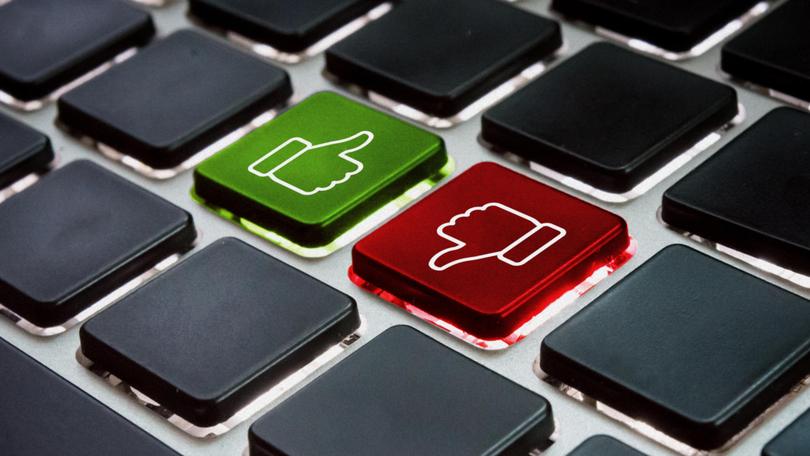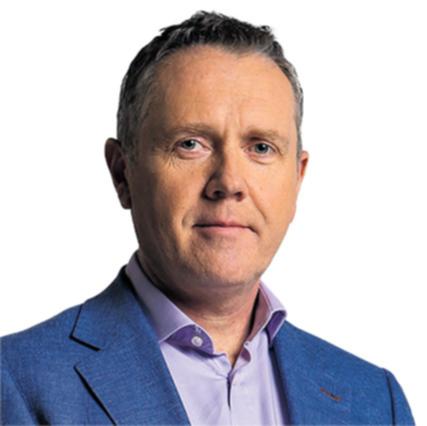ANDREW MILLER: Better values needed in modern technologically advanced world
ANDREW MILLER: Gather round and I’ll tell you about some noisy characters from the olden days: a squawking dial-up modem, a stuttering floppy disk, and a tooth-drilling dot-matrix printer.

Gather round and I’ll tell you about some noisy characters from the olden days: a squawking dial-up modem, a stuttering floppy disk, and a tooth-drilling dot-matrix printer.
Back in 1987 we paid by reliable cash or cheque. Remember those? The conspiracy theories then surrounded 1G — Telecom’s brand new analogue mobile network. There was no organised resistance though — this was years before the lunatic fringe would find one another on the tangled worldwide web.
Without warning, Dad brought home a new Macintosh computer with 1MB of RAM. It was a friendly-chiming little box, with 9-inch monochromatic screen and a rainbow Apple logo. It booted from a floppy disk drive, and the pre-Bluetooth mouse had a lint-gathering ball, rather than a light.
Sign up to The Nightly's newsletters.
Get the first look at the digital newspaper, curated daily stories and breaking headlines delivered to your inbox.
By continuing you agree to our Terms and Privacy Policy.Like the arrival of a new sibling, this was an exciting incursion that no-one could ignore. We knew things would never be the same; we just couldn’t foresee the details.
The programs included word processing with cut and paste, a spreadsheet that could add up, and a painting program! We never missed these things before, but now we could not live without them. We found a use for shiny technology, as humans do.
Life is punctuated with ratchet events: things that cause irreversible, significant change. They jolt us into the next parallel universe — though we might take a while to understand.
Events like births and deaths, accidents, and the next new technology. The diagnosis of an illness, or a pandemic. A slap, or a kiss. Trump’s bleeding ear. The domestication of wheat; the rise of cities; atomic bombs; microchips, and ubiquitous SUVs.

We sometimes spend a long time figuring out whether a particular development was good or bad. Life is never simple.
The ads for CloudStrike say: “Stop Breaches. Drive Business.” Last week they stopped more than breaches — they stopped the world.
On July 19th, in the blue glow of Microsoft’s passive-aggressive screen of death, we were prompted to consider whether the inexorable, exponential rise of a unitary internet has been a good thing.
The hopes and dreams of stable western democracy, underpinned by independent benevolent institutions and technology, seemed rosy towards the end of the last century.
Thirty years on, many find their confidence faltering. Our unimaginably powerful new science is not reducing the worst complications of humanity — war, poverty, inequality, human rights abuses, pestilence, and environmental damage.
Artificial intelligence — the next big thing we never asked for — will accelerate technological advances, make us more interdependent, and introduce a panoply of new threats to global stability.
Everything is everyone’s business now. Putin, Gaza, and elections in the USA are our problems, whether we like it or not. We gave everyone the microphone of social media, and those with the loudest voices are speaking over the reticent and wise. The quest for power, attention, and wealth has become shameless.
What to do?
Many a life has been frittered away wishing things had not happened, but regretful nostalgia sabotages every opportunity of the present moment. We can’t go back, we must push forward, while fighting for better values in the application of technology.
The answer lies in holding leadership accountable to deliver for the masses, not just the marketeers. We need to bring the weak along with us, not just hope to be one of the strong. AI could help us select leaders who might ensure we act for the benefit of all.
We should be aspiring to prevent war and crime, rather than get better at prosecuting it. Racing drones should be delivering food and medicine to the displaced, not carrying indiscriminate ordinance.
I keep that old Mac computer on my bookshelf. It reminds me of Dad, and that we have come very far, too quickly.
Hope comes not from ever-better tools, but because our best impulses are as deeply encoded as our worst.
Everyone still loves their kids, and that’s a great place to begin, and end.
